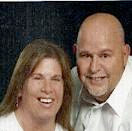For some reason we don't like to say it, we don't always mean it and when we do think of it, it's never often enough. We seem to be a society that finds it hard to admit our faults, even when we ARE wrong. Love is saying you're sorry and from the heart.
Is says something about society in general when we question the need to apologize even in our closest relationships? If saying sorry exposes us to confrontation or scrutiny, shouldn't we be willing to accept that from our loved ones?
If people feel that saying they are sorry diminishes the respect they receive from others, or brings their judgment (and their intelligence) into question - what kind of people CAN apologize freely?
Perhaps the answer lies deeper than a person's perception of how they'll be viewed. What are the reasons for apologies?
Dr. Aaron Lazare tells his thoughts on the motives for apologies in an article entitled, 'Go Ahead, Say Your Sorry', published by Psychology Today. He indicates two positive reasons we apologize include, the desire to restore or salvage a relationship or diminish the pain you've caused someone.
The less admirable reasons for an apology he indicates include the desire to escape punishment or the need to clear a guilty conscience - whether the other party was offended or not.
Clearly the first two positive reasons for apologizing goes a long way towards creating happy, healthy relationships. Whether we are brought up to believe in admitting our guilt or not, taking a humble view of ourselves in order to benefit a relationship or an individual whom we've hurt is critical in maintaining respect for each other.
While some individuals may not require apologies from their partners, there is a certain loss of respect between the couple when one is not offered. The hurt partner has not gotten their pain acknowledged by the one they love. The offender now lives with the guilt or may start to believe their partner is not worthy of such acknowledgment.
In either case, the relationship suffers. On the other hand, frequent offenders may do too much apologizing. Their constant display of a guilty conscience forces the hurt partner to accept behavior that they should be questioning or challenging. Why can't we see that love is saying you're sorry when you're wrong?
Accepting each other, through bad times and good, is a big part of a loving and enjoyable relationship. Not making note of our mate's mistakes or judging each others weaknesses certainly has its place. But if you are willing to apologize for your lack of responsibility or good judgment; this will strengthen, rather than weaken, the bonds of a healthy relationship.
Sunday, November 30, 2008
Love Is Saying You're Sorry When Wrong
Labels:
apologizing,
apology,
love,
love is saying you're sorry,
relationships
Subscribe to:
Post Comments (Atom)





No comments:
Post a Comment